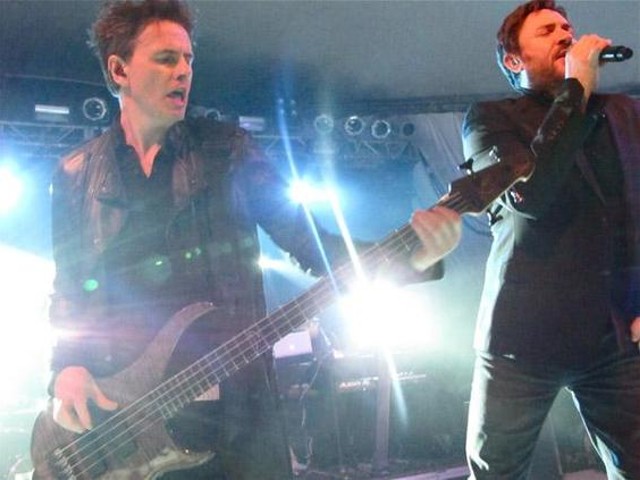1997 brought the release of The Red Dirt Sampler, a compilation of Stillwater Red Dirt acts. A follow-up released in 2003 bore the subtitle "Songs in the Spirit of Woody Guthrie" by artists like Jared Tyler, Bob Childers, Mary Reynolds, Red Dirt Rangers, and Greg Jacobs.
Video for "Woody's Road" by Bob Childers
Hugh Foley from Rogers State University covered Red Dirt's African American and Native American Roots in a whirlwind presentation with guitar, harmonica, and a load of whimsy. He called Guthrie "a one-cylinder guitar picker. What does that mean? G." It's musically simple.
As for Native American influence in Red Dirt, there isn't any directly. The African-American influence comes from the blues. Prior to Oklahoma's statehood, Guthrie's hometown of Okemah was racially mixed with whites and Native Americans. Statehood brought segregation laws that were in effect during most of Guthrie's time in Oklahoma. The prior racial diversity led to a unique musical blend seen in the "stomp dance" of the Creek tribe around Okemah. Scottish and Irish settlers brought the hymn form, which the Creek used to compose songs in their language, often with themes of removal and displacement. Stomp dances are still a part of Creek life.
Stomp dance video:
Revered Guthrie expert and session chair Guy Logsdon, retired from Tulsa University, led the audience in singing "Oklahoma Hills", the state's official folk song and a Guthrie composition. Mostly Logsdon shared stories from his extensive research, including how Guthrie didn't believe in copyright laws and in 1938 told people to do whatever they wanted with his compositions. This, however, led to Guthrie returning from the Merchant Marines in 1945 to hear a version of "Oklahoma Hills" recorded by his cousin Jack Guthrie. Woody eventually was given co-writer credit and royalties for the song.
Logsdon theorizes that Guthrie's mind was geared for writing and that he possibly had a photographic memory and took naps instead of getting a full night's sleep. It wasn't unusual for Guthrie to go to bed at the same time as the rest of his family, but write ten songs before they awoke.
A lunchtime keynote address from Texas Populist writer Jim Hightower reinforced how Populism needs to be applied in the current economic climate. He pointed out that the Guthrie knew change doesn't come quickly, and that "everyone does better when everyone does better." He quoted Guthrie: "There's one way to save yourself - fight for everyone." Hightower cited Bruce Springsteen's "Wrecking Ball" as the epitome of modern Populism in music, reiterating its importance by saying, "We have to tell our stories and dreams."
The final panel discussion, Echos of Woody, began with Will Kaufman of the University of Central Lancashire and author of last year's "Woody Guthrie: American Radical" presenting Woody Guthrie's American Radicalism. Guthrie constructed the persona of a worker and wrote that manual labor equals authenticity: "People ain't nothing but their work". Guthrie wasn't a hobo, claiming trains were too dangerous and uncomfortable. He was highly literate, but kept himself scruffy and accented. He wasn't a laborer, but he told the laborers' stories in the first person.
Kaufman argues that protest music was born from the plight of California migrant workers, and reiterated the points of Oklahoma Socialism and its connection to evangelical Christianity of the time.
Mark Jackson from Middle Tennessee State University was unable to attend, so his paper Jolly Banker: Woody Guthrie on the Financial Crisis of Yesteryear and Today was read for him. He wrote of the history of Guthrie's song "The Jolly Banker". Written in 1940, the song came from the perspective of the banker who thinks he's a benevolent citizen for issuing credit to workers, not recognizing the unfairness of the credit terms. The same day Guthrie recorded "The Jolly Banker", he also recorded "I Ain't Got No Home in This World Anymore", a lament from a person who's lost everything to the financial system.
What would Woody thing of what's happening now? He would relate to the downfall of the middle class, having lived through something similar when his father lost everything. This led Guthrie to base his songs on emotions, not intellect.
In 2009 Guthrie's daughter Nora, who maintains the archive of her father's works and makes his songs available to musicians, asked Wilco to record "The Jolly Banker" because the timing was right.
Wilco: The Jolly Banker
Tulsa University's Jim Ronda gave the final presentation, A Better Home: Building an American Future, pointing out that Guthrie perpetually used the words "home" and "road", with the former usually taking favor. He explored how to build his dream home. Who would build it? He would do it himself. There would be rooms for work, community and union, family and children, and plenty of floorspace for dancing. A hootenanny room for parties, which might make a little money for the family from friends who wanted to join them in playing music. Because songs can let people see things as they could be, and are the key to bringing people together.





